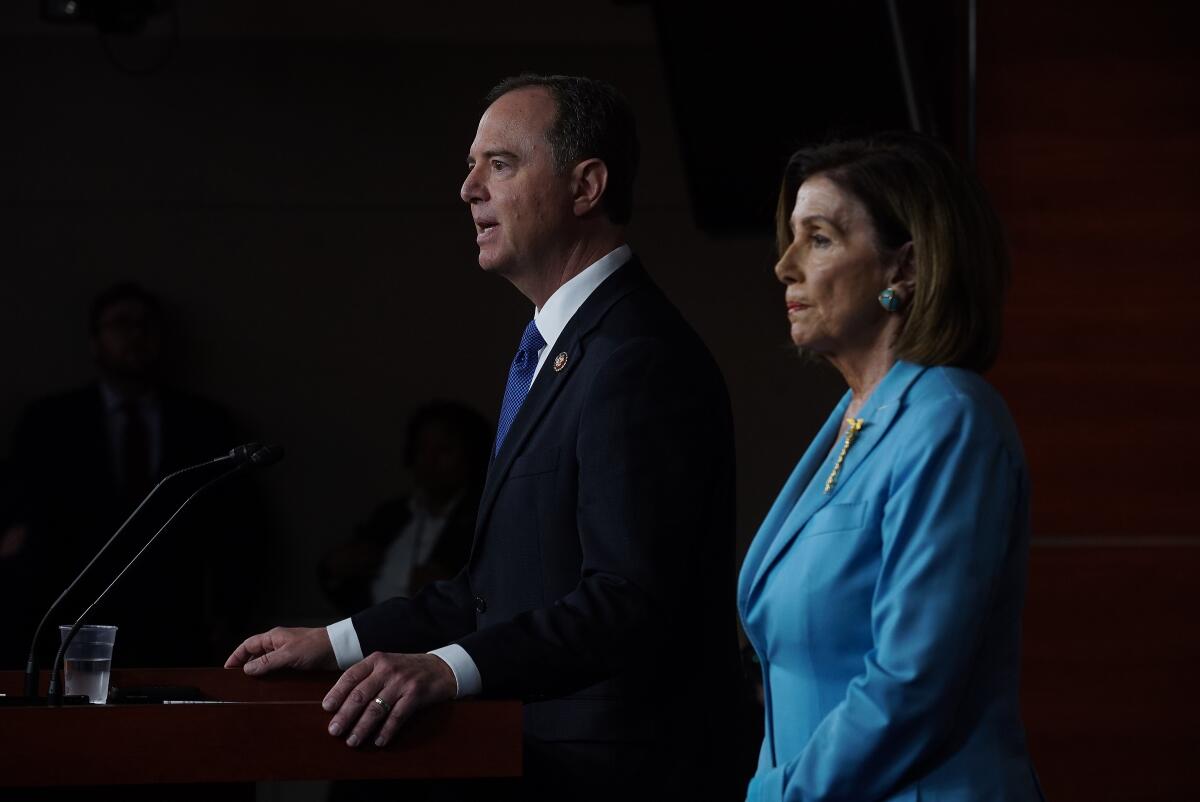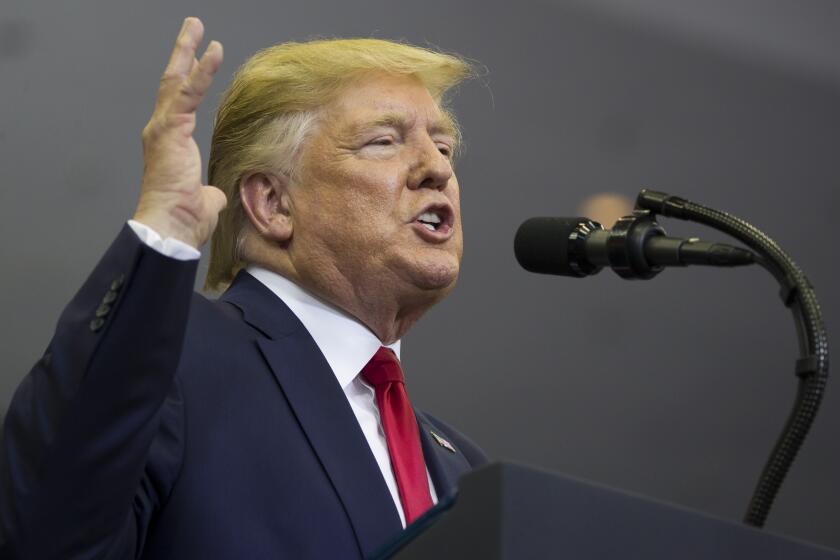Here’s what Democrats are reportedly considering to protect the whistleblower’s identity

- Share via
WASHINGTON — House Democrats are considering additional measures to protect the identity of the whistleblower whose complaint spurred an impeachment inquiry into President Trump, according to the Washington Post.
To prevent efforts to expose the whistleblower, Democrats are weighing having the individual testify from a remote location and obscuring the person’s appearance and voice, three officials told the Post.
The unusual measures come amid an impeachment investigation focused on President Trump’s interactions with Ukraine after the whistleblower complaint raised concerns that Trump was leveraging U.S. foreign policy for personal political gain ahead of the 2020 presidential election.
Second whistleblower emerges in Trump impeachment inquiry, said to be one of ‘multiple’ complainants
Whistleblower knows firsthand about Trump’s dealings with Ukraine, lawyer says. Another member of legal team cites “multiple” whistleblower clients.
Despite legal protections for anonymity, President Trump has made repeated calls for the whistleblower — whom he has called a “partisan hack” and “close to a spy” — to be revealed. This has raised concerns that the whistleblower’s identity could be leaked by those in the investigation’s orbit who would typically have unaltered access to the testimony.
Once a federal employee discloses wrongdoing through proper channels, they are granted whistleblower protections. These protections are meant to shield whistleblowers from retaliation that could affect their job duties, responsibilities, working conditions and their eligibility for access to classified information.
Additional anonymity measures reportedly could include holding a staff-only session that lawmakers would not be able to attend to ask questions, as well as having the whistleblower testify via video conference in a way that would obscure his or her appearance and voice. Options such as sitting the whistleblower behind a partition or conducting audio-only testimony also are being examined, according to the Post.
The suggestions came after a lawyer representing the whistleblower raised “serious concerns” in a September letter to Joseph Maguire, acting director of national intelligence, about his client’s safety, citing the president’s attacks. The letter also said a $50,000 “bounty” had been established for information relating to the client’s identity.
“Unfortunately, we expect this situation to worsen, and to become even more dangerous for our client and any other whistleblowers, as Congress seeks to investigate this matter,” wrote Andrew P. Bakaj, the whistleblower’s attorney.
The legal team representing the original whistleblower recently announced they were representing a second whistleblower but provided no further information.
Although Trump rails about an anonymous whistleblower’s role in the impeachment saga, laws protecting American whistleblowers predate the Constitution. But it’s been a rocky ride.
More to Read
Get the L.A. Times Politics newsletter
Deeply reported insights into legislation, politics and policy from Sacramento, Washington and beyond. In your inbox twice per week.
You may occasionally receive promotional content from the Los Angeles Times.












